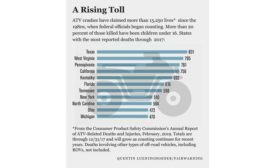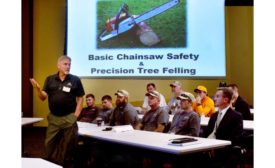News
A FairWarning Story
ATV deaths top 15,000 threshold in latest government report
March 20, 2019
Craft breweries get help with workplace hazards
Workers affected by falls, struck-by injuries, overexertion
March 19, 2019
75 percent of workplaces in NSC poll affected by opioid usage
Only 17% of employers polled are well prepared to deal with the issue
March 18, 2019
Become a Leader in Safety Culture
Build your knowledge with ISHN, covering key safety, health and industrial hygiene news, products, and trends.
JOIN TODAYCopyright ©2024. All Rights Reserved BNP Media.
Design, CMS, Hosting & Web Development :: ePublishing









